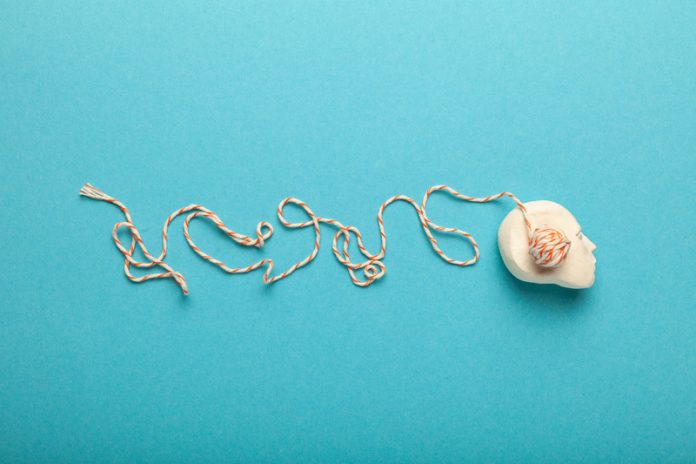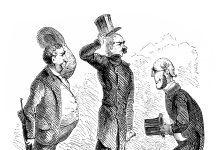Resilience in times of crises and how to come our stronger – an interview about with Prof. Dr. Brigitte Anderl-Doliwa and Franz-Josef Wagner
Everybody is talking about resilience: Particularly now, in difficult times, it is important to have properties and abilities helping us to overcome crises – or even to come out strengthened. But what exactly is resilience and how do we notice that we possess resilience?
These are some of the questions the initiative “Die Pfalz macht sich/dich stark – Wege zur Resilienz” (The Palatinate makes itself/you strong – roads to resilience)“ is dealing with. In its projects it concretely stands up to strengthen resilience in the Palatinate region – in calm as well as in stormy times. Project coordinator Romina Männl examined what resilience means especially in times like these in an interview with two members of the initiative, a professional expert and an expert by experience: Brigitte Anderl-Doliwa is professor of nursing sciences at the Catholic University of Applied Sciences Mainz and nursing director at Pfalzklinikum. Franz-Josef Wagner is the head of Netz-G, the state network “Self-help mental health Rhineland-Palatinate” and has himself experience in coping with mental problems.
Männl: Mrs Prof. Dr. Anderl-Doliwa, Mr Wagner – Resilience describes the ability to handle crises and challenges well and at the best to come out stronger. How does it happen that during critical times such as the COVID-19 crisis, some people cope with their daily life energetically and confidently while others are plagued by fears and feel incapable of acting?
Anderl-Doliwa: Resilience is like a muscle – it is there from the very beginning but it does not grow and get stronger unless I train it and load it with a weight. For our life this means figuratively: It also requires exercise to cope with challenges and crises. Therefore we should not demand too much from us right away.
Wagner: That’s right. – If we have experienced many exceptional situations in our life, we can learn by experience. This includes daily challenges: the first day at school, buying a car, renovating an apartment. You can literally grow with these challenges. In difficult situations we can orientate ourselves by our earlier actions and consider – what helped me at that time in this and that situation – how did I deal with it.
A great help are, of course, the persons around us who give us support that we can rely upon. It helps to know that we are not alone, and that other people face similar challenges. We do not have to be capable of doing everything alone.
What are the distinctive features of resilience now in particular? What tells us how resilient we are?
Anderl-Doliwa: In challenging times, it is important that we structure our day and maintain or establish as many daily routines as possible since these can provide security in uncertain times. Resilience shows itself already in small things – when I get up in the morning and dress myself despite home office, short-time work or contact restriction, when I take charge of shopping and preparing meals at the usual times, when I take a walk or realize small projects.
Wagner: We must see the good side of this situation. I am thinking of a friend which due to a mental disease had to live many years in a sheltered institution and is living alone now. For her, the COVID-19 crisis with all its restrictions is a stepping stone to find a daily life she structures herself. She thinks from day to day – in small steps. This can help, too: establish a plan for the next day or the next week that you can again and again orientate yourself by. For example, she and I regularly go hiking every Saturday. This can already be an anchor.
What can we do to stay optimistic and balanced even in difficult times?
Wagner: Keep in touch with others! Exchange is important: how do other people handle such situations, what solution strategies do they have. This way we also feel confirmed in what we are doing and that we are on the right track. Or we can reorient ourselves by taking another perspective.
Anderl-Doliwa: To help others and to make them a pleasure can make us feel good ourselves. For example, a self-help group with whom I am in close contact for professional reasons sent a small package of sunflower seeds to all its members by post. Everyone for himself but all of them together could observe how the sunflowers were growing in their own flower bed. This small project did not only have a task and a goal – i.e. to let grow beautiful sunflowers. It also had a connecting function for the people not being able to meet.
Wagner: In general, it can be good to realize small projects. They give us a goal, but also activity, distraction, and positive impressions. And we get the feeling that we can achieve something on our own instead of feeling powerless in view of this situation.
When we are acutely overwhelmed by fears and concerns how do we manage to calm down and look ahead again?
Anderl-Doliwa: Our thoughts have a major impact on our feelings. In such situations we should first become aware of the fact that we are thinking in catastrophe mode. Then we must sit down and say: Stop these thoughts now. It can be helpful to write down the thoughts and reflect on what is going well despite of it all? Furthermore, we should be aware of the fact that every crisis is limited in time and that the situation will ease eventually.
Wagner: We should not see ourselves as victims of the crisis but should recognise: the situation is perhaps not nice, but I can do something to make it better for me and others.
What tips do you have how to strengthen our resilience in good times in order to draw on it in difficult times?
Anderl-Doliwa: When reflecting the crisis, we can also see its positive aspects. For example, I ask myself: Do we need all the journeys or is there another way? Can we handle ourselves better if we retain something from slowing down our life?
Wagner: This question reminds me of Napoleon. During his campaigns he thought about how to conserve food and feed his soldiers for a longer period. So he had the can developed which still serves a useful purpose today. The creative adaptation to a difficult situation can persist for a long time – like so many things now developed out of misery will exist after the COVID-19 crisis.
What do you do personally to stay optimistic and balanced in difficult times?
Anderl-Doliwa: Cooking something good, laying the table nicely or working in the garden does me good in stressful times. My garden has never been as beautiful as now.
Wagner: Breaking out of brainwork! I go hiking with two friends every week. It is lovely to simply break out of daily routine. Communicating with others does me good – and talking about different subjects from time to time.
Authored by Romina Maennl – Romina.Maennl@pfalzklinikum.de








